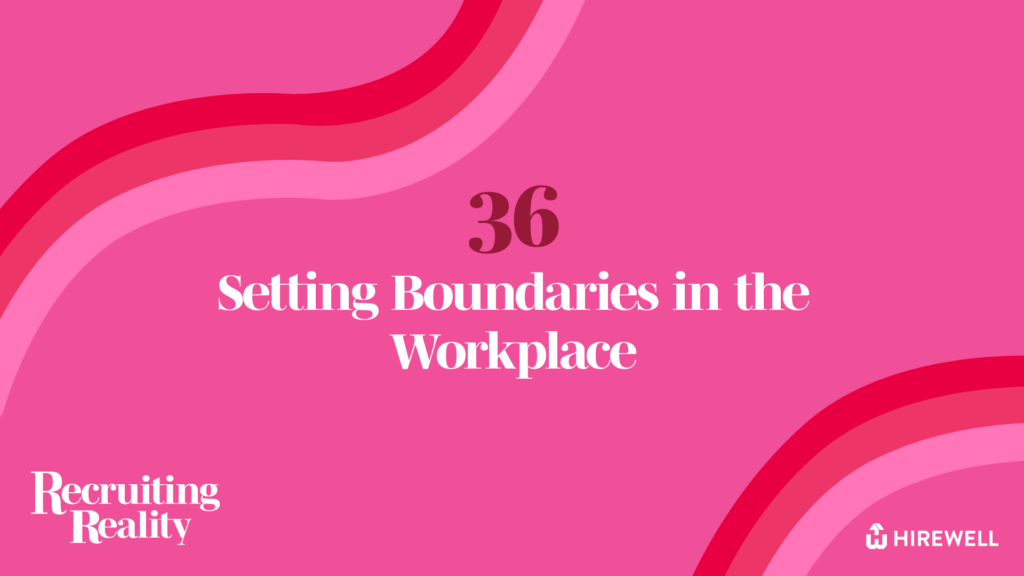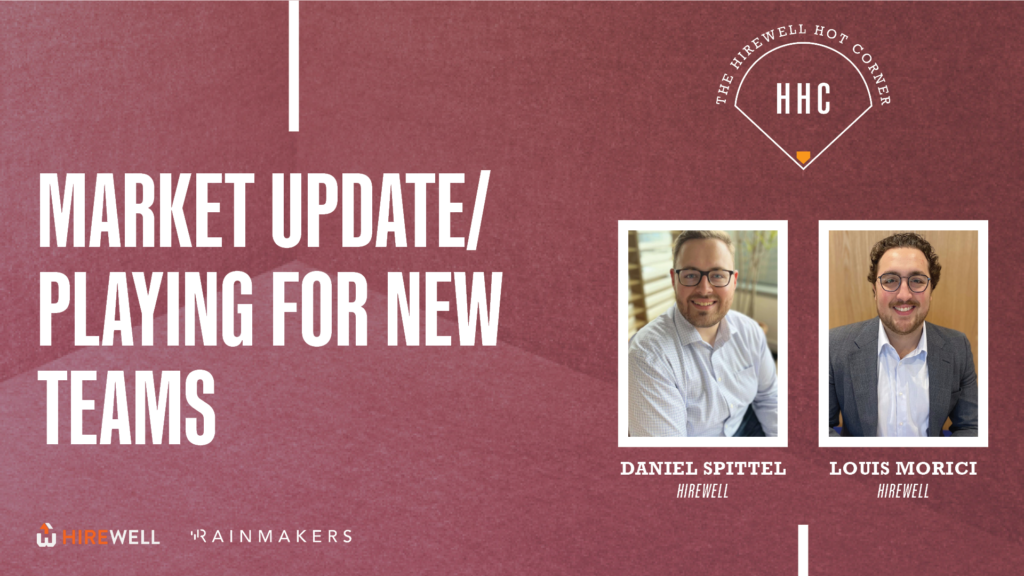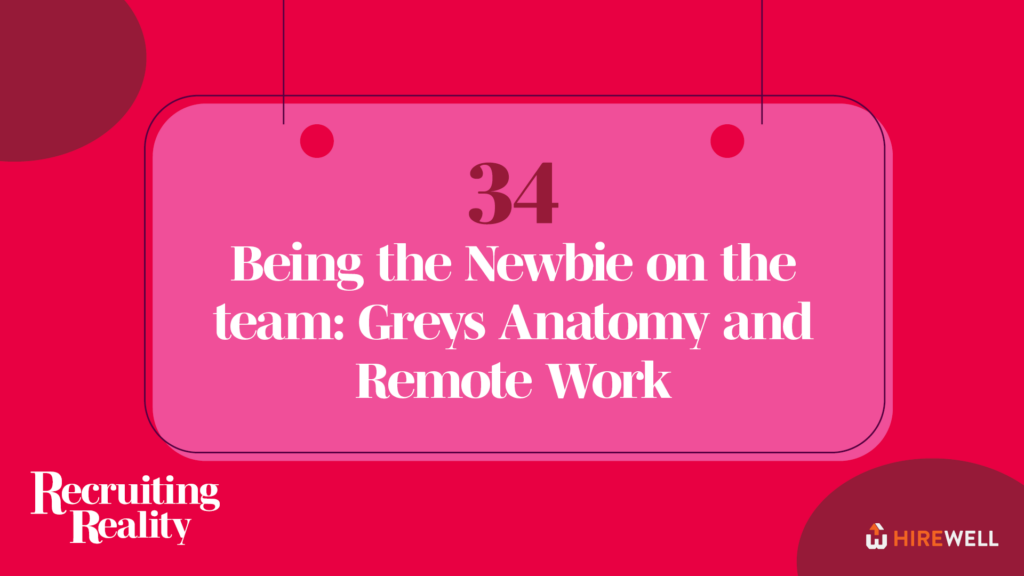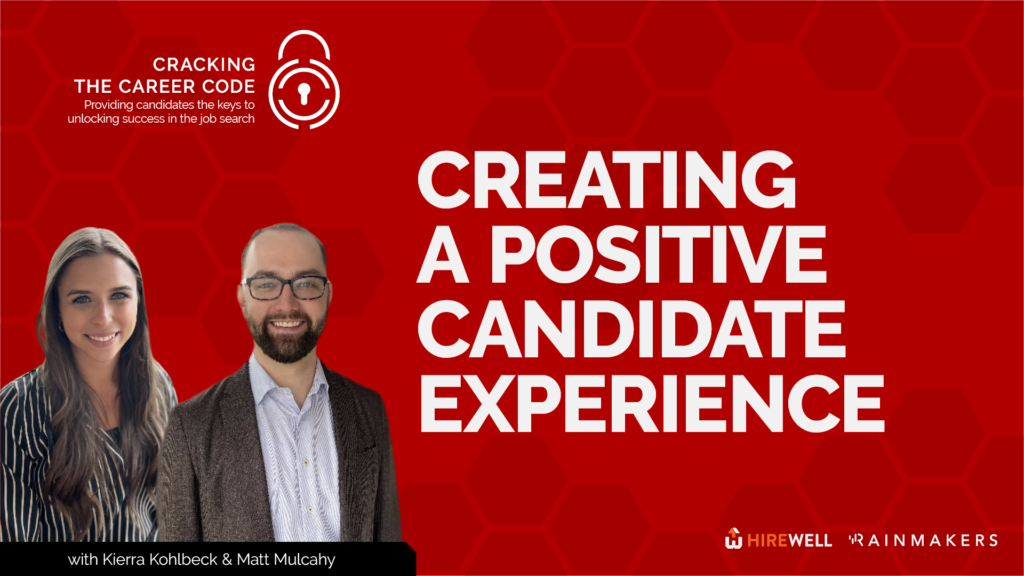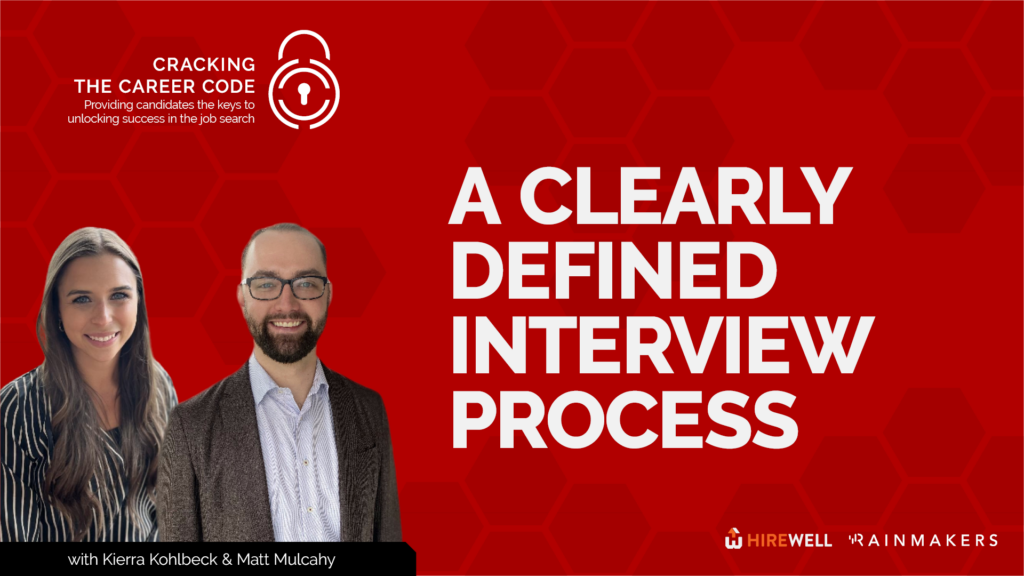With companies hiring again post-recession, Covid has dramatically changed how companies interview and hire. James Hornick and Matt Tokarz discuss the current hiring trends across the organization. Looking at the changes in interview style, candidate’s thoughts on assessments, and what to do with that “Covid Gap” on your resume, the Hirewell team addresses some of the most talked about topics in today’s market. If you aren’t evolving with the times you may be a step behind, take a look at what we are seeing here in Q1 of 2021.
Episode Transcript
What’s kind of the norm right now in terms of just what’s out there?
It’s interesting. From a candidate perspective they’re either super interested in making a move and actively interviewing. And if they are, they’re typically interviewing at three, four, five places because they can. That availability’s there.
Or they’re just, they’re staying put, they’re happy with their company’s response and there’s not much that can get them to move. We’re seeing obviously an influx of remote positions and being in the heart of the Midwest we’re seeing a lot of East coast and West coast companies try to steal some of that talent as well.
I’m sure you could probably do a 10 minute rant just on that alone in the coming weeks but you know it’s interesting. And the companies that are evolving with that have adopted work from home policies, have something set in stone for what comes next post pandemic and whenever that is, are going to be more effective because they have strategies in place.
The ones that don’t, they’re having a little bit more trouble because there’s a lot of companies that are reaching out right now with fully remote or mostly remote positions wherever they are and people are used to it. To hear from companies that are like, “Yeah, we’re going to be back in the office
full-time five days a week in September” that’s not the way that most candidates are looking at the job market at this point anymore. And with people still working remote pretty heavily, there’s a lot more of an opportunity for somebody to take half hour, 45 minutes out of their day, entertain a call and then kind of get that process rolling.
So, like I said, I mean if people are looking and are actively interviewing for the most part we see them interviewing at three to five places at minimum. I can’t tell you how many times over the last four or five months that people that I’ve been working with have had multiple offers and that’s great.
That’s what you want to see as a candidate. It’s not always what you want to see as a client or a recruiter but you know at the end of the day, like it just shows how quickly things are ramping back up and how many opportunities candidates have. So if your hiring process doesn’t have the speed to compete with that
you’re going to be missing out on talent that’s ready to move and is looking to make that change.
I think another thing that kind of backs that up is our own response rate to InMails now versus last summer is down like 5%. And I think – this is an aggregate across the organization. So I think you can say like the level, obviously some people are better writers than others and whatnot.
When you’re talking aggregate, you’re just talking like there’s less of an interest in certain things and that’s because people are just inundated with more opportunities. You’re only going to reply to so many things and when you see like an overall kind of response rate go down it’s not because people aren’t interested in moving it’s because there’s that many more things out there that it’s just that much more competitive.
Which I thought it was just kind of interesting point. What about assessments? Whether they’re personality assessments or cognitive assessments, are you seeing any change in how candidates are viewing those with the demand, what it is right now?
We see kind of a mix and especially on our team in marketing, there’s kind of three. There’s your personality, your cognitive and then like actual work that’s like putting together a case study or something like that.
And I think across the board candidates tend to understand them but because they have so many opportunities in front of them, like I’ve had people just flat out say, “You know, what if they want me to put this kind of time into it like it’s not something that I’m interested in right now. I’ve got four or five other things going on that I’ll prioritize over this and if it comes back to it and you know, I need to sink some time into it,
sure.” But candidates right now they have so many things on their plate, if the process is more streamlined they tend to respond or react better to it.
Are you seeing people who have gaps from last year have a more difficult time right now or is it really the case where everyone kind of writes off the last year when they look at candidates?
I don’t think I’ve seen clients kick back on why has this person been out of work for the last year? The thing that I have seen is why is this person looking already after taking a new job in August? So that’s been like the biggest flux where we’ve had to walk clients through, like this person took a job because they were impacted by COVID and it’s fine.
They’re in a good spot but in reality they’d rather be doing X, Y, and Z, and be working for a different company or a company that they believe more in. Where they might’ve taken a job during the pandemic, they’re looking for career. Companies right now that aren’t changing what they’ve done over the last year and a half.
And they’re trying to revert back to what it was in 2019, they’re going to be a step behind. And you it’s just because other companies have evolved and have changed how things have gone and have allowed candidates to – or allow their employees to be a little bit more mobile. And I think if you’re going to revert back to the five days a week in the office sort of mentality, you’re going to be missing out on talent that is going to be looking for something like they’re accustomed to over the last year.
It’s extremely cut throat right now from the standpoint of either you’re a company that’s hiring and you’re hiring successfully or you’re losing employees because people are hiring from you. And that’s just the reality of it.








